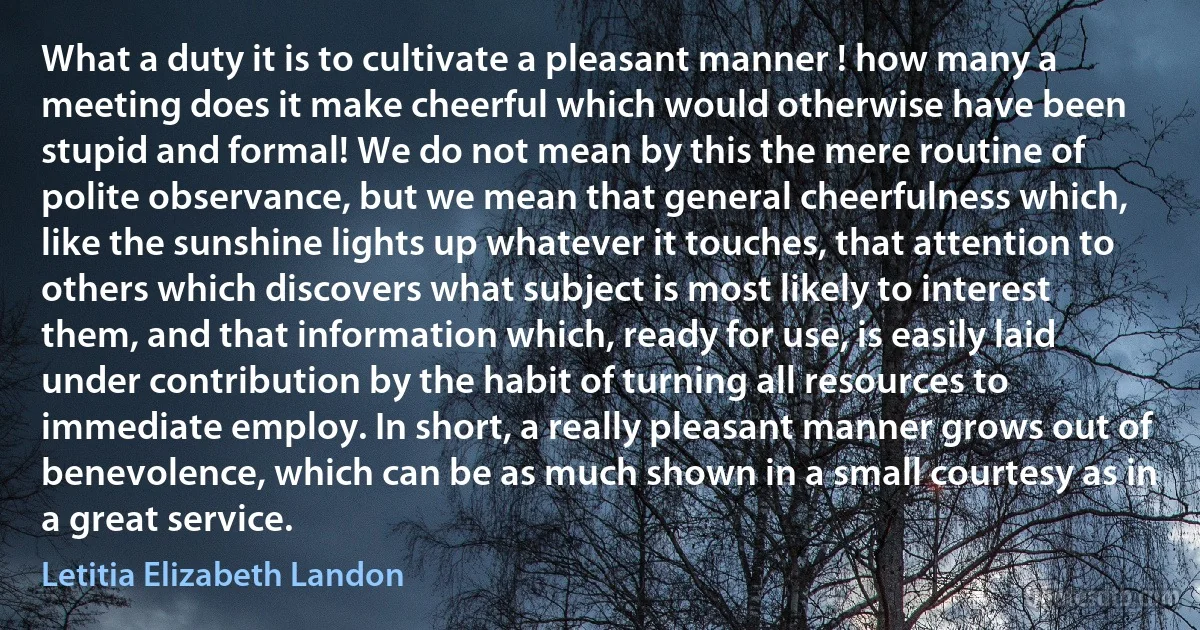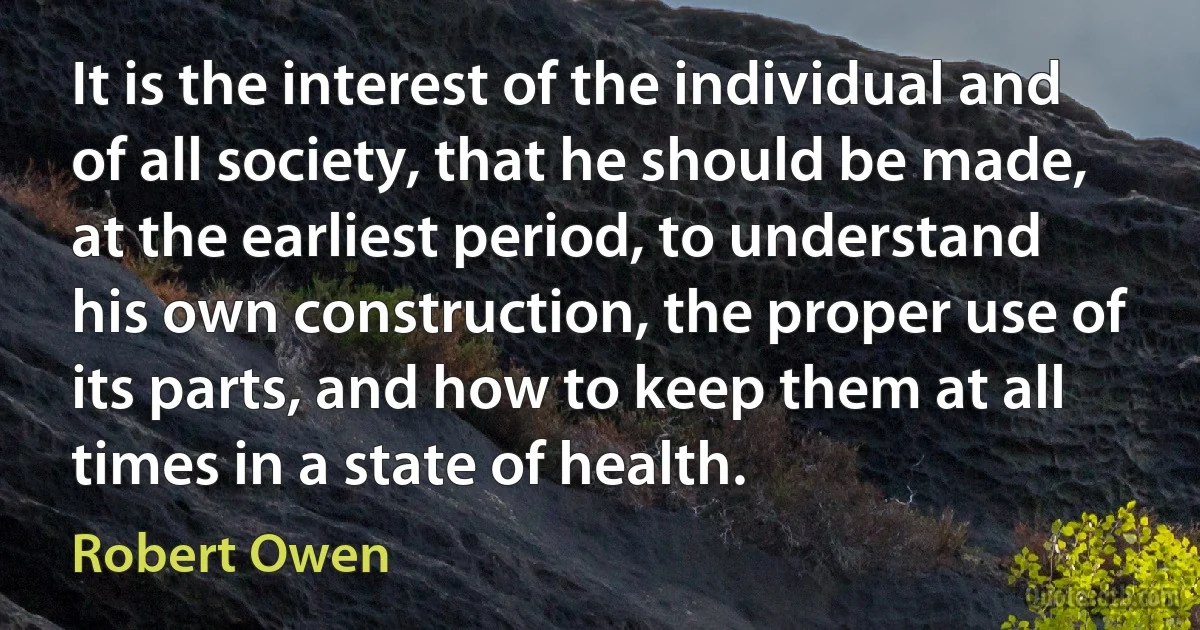Interest Quotes - page 97
Youth is frank, eager, and prone to believe in the good ; it looks round, and it sees flowers ; it looks up and sees stars ; evil appears impossible, because it does not seem to be in ourselves. It remains for after and weary years to teach us, that even the young and the innocent may be led into crime by the strong influence of temptation. Passion first, and interest afterwards, lures the feet of men into dark and crooked paths, which none in earlier and holier hours deemed they could tread. We may have been often deceived, but it is not until we ourselves begin to deceive that we dread deceit.

Letitia Elizabeth Landon
The history of most fictions would be far stranger than the fictions themselves ; but it would be a dark and sad chronicle. Half the works that constitute the charm of our leisure, that give their own interest to the long November evening, or add to the charm of a summer noon beneath the greenwood tree, are the offspring of poverty and of pain. ... How often is the writer obliged to put his own trouble, his suffering, or his sorrow aside, to finish the task ! The hand may tremble, the eyes fill with unbidden tears, and the temples throb with feverish pain, yet how often is there some hard and harsh necessity, which says, "the work must be done.”.

Letitia Elizabeth Landon
We declare pragmatism to be bad, not indeed in its moral consequences (which, as a matter of fact, ought not to count in philosophy), but because it introduces into our fashion of thinking a degrading sophistry. Pragmatism, in its modern systematized form, would scarcely have been possible in earlier times. It has, however, become so since erudite scholars and original thinkers have deemed it fit to cater to a public incapable of taking a genuine interest in their researches and their speculations, a public which in the last resort wishes simply to amuse itself with these as it amuses itself with everything else, - the public of our modern democracies. We feel flattered by the plaudits of the crowd, and to procure these we are satisfied to get down to the level of those whom as thinkers we should disdain. Popular science, popular art, popular theology - only one thing was lacking - popular philosophy.

Albert Schinz
A lot of people, most people who are working, they do it for money. And I'm not saying there's anything wrong with that. It so happens that I made a lot of money already, so I don't have to worry that much about it. I wouldn't fault anybody for doing it for the money, but it doesn't interest me right now.

Joseph Gordon-Levitt
Machines have no political opinions, but they have profound political effects. They demand a strict regimentation of time, and, by abolishing the need for manual skill, have transformed the majority of the population from workers into laborers. There are, that is to say, fewer and fewer jobs which a man can find a pride and satisfaction in doing well, more and more which have no interest in themselves and can be valued only for the money they provide.

W. H. Auden
If you neglect those who are currently poor and stable, you may create more poor and unstable people. There has been a tremendous concentration of donor interest in countries that are seen as particularly fragile - but it becomes harder to mobilise money for sub-Saharan, plain poor countries.

Helen Clark
After many weeks of personal prayerful thinking and analysis, I have come to the conclusion that it is time to close this public service chapter of my life. It's time to begin opening new chapters and pursuing new opportunities to engage in the important cultural and political battles of our day from outside the arena of the U.S. House of Representatives...I refuse to allow liberal Democrats an opportunity to steal this seat with a negative, personal campaign....I just realized that my constituents don't deserve this, they deserve a Republican. I think I could have won this seat but it would have been nasty, it would have cost a fortune to do it. The challenge has always been in the interest of the constituents' cause and the Republican majority. I'm more interested in growing the Republican majority than my own future.

Tom DeLay
I did speak extensively - often quite critically - about the reviled work of Richard Goldschmidt, particularly about aspects of his thought that might merit a rehearing. This material has often been confused with punctuated equlibrium by people who miss the crucial issue of scaling, and therefore regard all statements about rapidity at any level as necessarily unitary, and necessarily flowing from punctuated equilibrium. In fact, as the long treatment in Chapter 5 of this book should make clear, my interest in Goldschmidt resides in issues bearing little relationship with punctuated equilibrium, but invested instead in developmental questions that prompted my first book, Ontogeny and Phylogeny. The two subjects, after all, are quite separate, and rooted in different scales of rapidity - hopeful monsters in genuine saltation, and punctuated equilibrium in macroevolutionary punctuation.

Stephen Jay Gould
But they had forgotten something; they had forgotten journalism. They had forgotten that there exists in the modern world, perhaps for the first time in history, a class of people whose interest is not that things should happen well or happen badly, should happen successfully or happen unsuccessfully, should happen to the advantage of this party or the advantage of that part, but whose interest simply is that things should happen.

G. K. Chesterton



